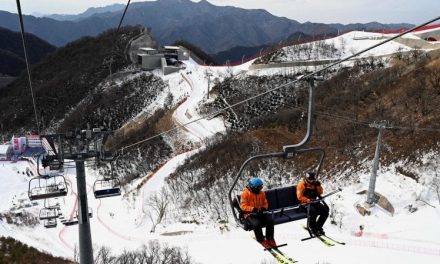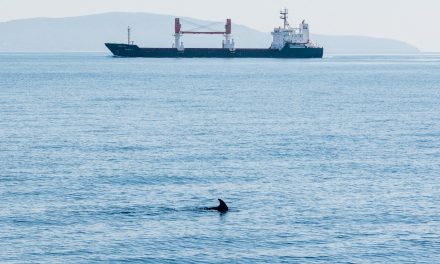For some time now, climate science has shown that Italy, situated in the Mediterranean Sea, a climate hot-spot, is vastly affected – more so than other areas in the world – by recent climate change of anthropogenic origin. Land and ecosystems, society and people, their well-being, safety, health and production activities are all impacted by the repercussions of the climate crisis.
Warming temperatures, disruptions in the water cycle and other climate and weather phenomena impact fragile territories and cause damage at various levels, besides strongly and negatively affecting economic activities and social life. Widely accepted estimates indicate that climate change will significantly reduce economic development and seriously damage cities, businesses, agricultural production and infrastructures.
On a global scale, a one degree celsius rise in average global temperature, for instance, will cause, on average, a 100% increase in the frequency of heat waves and between 30 to 40% increase in the frequency of floods and droughts, with a consequent decrease in welfare and gross domestic product. In Italy and in the Mediterranean the situation could be even more critical, as there is clear evidence of increasing heat waves and droughts, retreating alpine glaciers, increasing marine heat waves and a partial increase in extreme precipitation events.
Given this context, we believe it is vital to place the issue at the top of the political agenda. And the approaching elections constitute the chance to do it concretely. We therefore urge political parties to consider the fight against climate change as the necessary basis for achieving equitable and sustainable development in the years to come; it is in fact essential if their aim is to propose a future vision of society with any chance of success.
In the current situation, we believe the implementation of adaptation actions to protect us and our territory from heat waves, droughts, extreme precipitation events, sea level rise and abrupt phenomena of various kinds to be especially important; such actions should be based on the logic of planning and structural programming rather than the logic of emergency.
Due to climate inertia, the phenomena we see today will be inevitable in the future. Therefore, we have to manage their effects by protecting territories and production activities, and invest promptly and firmly the resources made available by the NRRP, or Recovery Plan. At the same time, we need to prevent irreversible changes, as in worst-case scenarios of climate change. To achieve this goal we must push hard on reducing our greenhouse gas emissions, decarbonising and circulating our economy, and accelerating the path towards a true energy and ecological transition.
As climate scientists we are ready to contribute to scientifically based concrete and effective solutions and actions, but we strongly urge politicians to consider climate crisis a priority, because it undermines the future of the whole humanity.
We therefore hope for an in-depth political agenda considering these issues and prompt action by the next government to fight the climate crisis and its effects.
Signatories
Carlo Barbante, Consiglio Nazionale delle Ricerche (CNR) e Università Ca’ Foscari, Venezia
Carlo Carraro, Università Ca’ Foscari, Venezia
Antonio Navarra, Università di Bologna e Presidente della Fondazione Centro euro-Mediterraneo sui Cambiamenti Climatici (CMCC)
Antonello Pasini, Consiglio Nazionale delle Ricerche (CNR), Roma
Riccardo Valentini, Università della Tuscia, Viterbo, e Presidente della Società Italiana per le Scienze del Clima
With the contribution of (AR6-IPCC):
Annalisa Cherchi, CNR, Bologna
Erika Coppola, International Centre for Theoretical Physics, Trieste
Susanna Corti, CNR, Bologna
Sandro Fuzzi, CNR, Bologna
Piero Lionello, Università del Salento, Lecce
Massimo Tavoni, Politecnico di Milano
Elena Verdolini, Università di Brescia
———-
Roberto Barbiero, Agenzia Provinciale per la Protezione dell’Ambiente, Trento
Leonardo Becchetti, Università di Tor Vergata, Roma
Alessandra Bònoli, Università di Bologna
Michele Brunetti, CNR, Bologna
Roberto Buizza, Scuola Univesitaria Superiore Sant’Anna, Pisa
Carlo Cacciamani, ItaliaMeteo
Stefano Caserini, Docente di Mitigazione dei cambiamenti climatici, Politecnico di Milano
Claudio Cassardo, Università di Torino
Marinella Davide, Università Ca’ Foscari, Venezia
Enrica De Cian, Università Ca’ Foscari e CMCC, Venezia
Maria Cristina Facchini, CNR, Bologna
Francesco Forastiere, CNR, Palermo, e Imperial College, Londra
Filippo Giorgi, International Centre for Theoretical Physics, Trieste
Silvio Gualdi, CMCC, Bologna
Fausto Guzzetti, CNR, Perugia, e Protezione civile, Roma
Vittorio Marletto, ARPAE Emilia-Romagna, Bologna
Simona Masina, CMCC, Bologna
Maurizio Maugeri, Università di Milano
Paola Mercogliano, CMCC, Caserta
Mario Marcello Miglietta, CNR, Lecce
Franco Molteni, consulente scientifico di ECMWF, Reading, UK, e ICTP, Trieste
Mario Motta, Politecnico di Milano
Elisa Palazzi, Università di Torino
Claudia Pasquero, Università di Milano Bicocca
Cinzia Perrino, CNR, Roma
Antonello Provenzale, CNR, Pisa
Gianluca Ruggieri, Università dell’Insubria, Varese
Gianmaria Sannino, ENEA, Roma
Stefano Tibaldi, CMCC, Bologna
Giorgio Vacchiano, Università di Milano
Francesca Ventura, Università di Bologna
(traduzione di Barbara Bacci)





